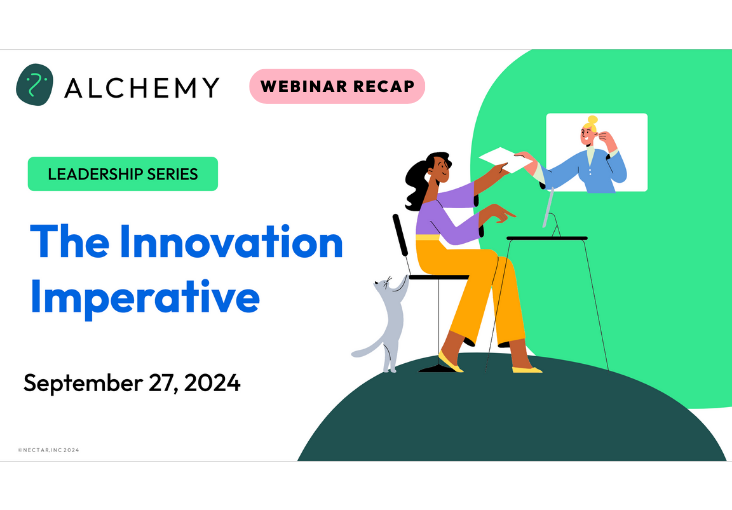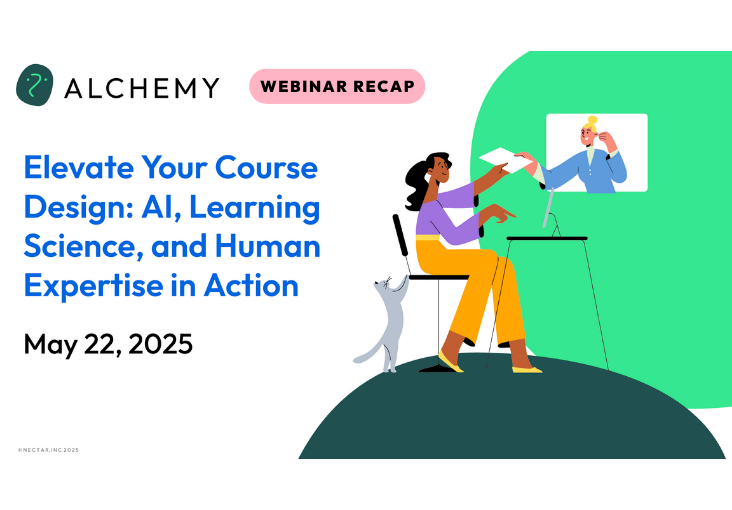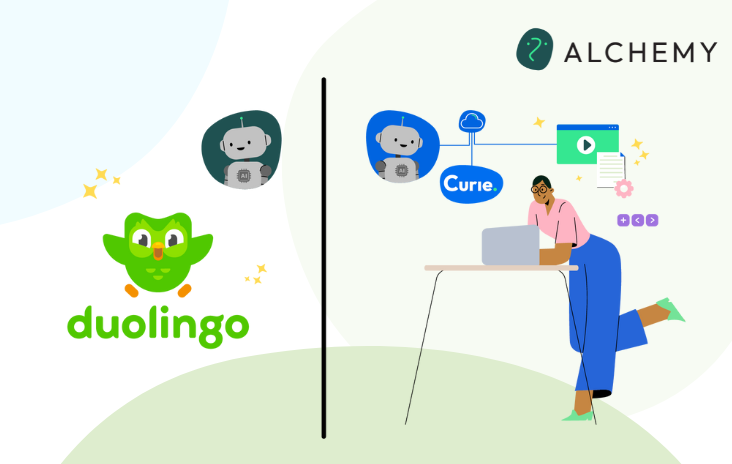Recap
The Innovation Imperative: Navigating the Future Together

The rapid pace of technological advancements and evolving student demographics are reshaping higher education in unprecedented ways. To explore these challenges and opportunities, our recent webinar brought together leading voices in the academic space—Kemi Jona, Ph.D. (Vice Provost for Online Education and Digital Innovation, University of Virginia), Shawn Benner, Ph.D. (Dean of Innovation and Design, Boise State University), and Ozlem Kilic, Ph.D. (Dean of Emerging and Collaborative Studies, University of Tennessee). These academic leaders discussed how institutions can stay ahead by embracing innovation, particularly in response to AI’s transformative impact.
Driving Innovation in Higher Education
The conversation opened with a critical focus on how academic leaders are driving innovation within their institutions. Carrie O’Donnell, moderator and founder of Alchemy, underscored the importance of leadership in adapting to change. Dr. Jona highlighted that higher education institutions must commit to change, not only to improve the learner experience but also to ensure faculty are empowered to thrive in an evolving landscape.
All three panelists have extensive experience in implementing institutional change, with Dr. Kilic describing her role in launching interdisciplinary degrees that foster collaboration across different fields. Emerging technology plays a pivotal role in preparing students for a rapidly changing workforce, as higher education increasingly needs to shift when and where teaching occurs, as well as how to engage in more authentic forms of assessment.
The Role of AI and Emerging Technologies
Artificial intelligence has become a double-edged sword for higher education. While it presents a unique opportunity to enhance learning outcomes, it also poses significant challenges to traditional education models. Dr. Benner discussed how AI’s emergence is pushing institutions to rethink everything, from pedagogy to workforce development. The urgency for institutions to innovate has never been greater, as the pace of technological change accelerates, creating a critical window for higher education to reimagine itself.
Dr. Kilic emphasized that universities must engage more actively with employers to better align education with workforce demands, especially given the growing talent gap in fields affected by emerging technologies.
Shifting Student Demographics and Workforce Needs
Our panel provided valuable insights into how student demographics are shifting, with fewer traditional-age students enrolling and a growing focus on lifelong learning. As institutions face a more diverse and non-traditional student body, Dr. Jona stressed the importance of flexibility in course delivery, curriculum design, and assessment strategies. Institutions that adapt to serve not only younger students but also working professionals and adult learners are likely to lead in the coming decades, as the need for change becomes not optional but necessary for long-term success.
Leadership in Action
Throughout the discussion, one theme stood out: leadership is key to navigating these transformations. The panelists reflected on the importance of interdisciplinary collaboration and the need for academic leaders to foster environments that encourage innovation. Carrie O’Donnell highlighted the importance of translating academic innovation into leadership strategies that drive real change. The panel concluded with a call for leaders in higher education to take bold steps to redefine education for the future.
Conclusion
As AI and other emerging technologies continue to reshape higher education, institutions must remain agile and forward-thinking. By embracing innovation, engaging with employers, and adapting to student demographic shifts, higher education leaders can guide their institutions into the future.
To learn more about how institutions can embrace innovation and prepare for the future of higher education, watch the full webinar on our Youtube.
Watch Now

